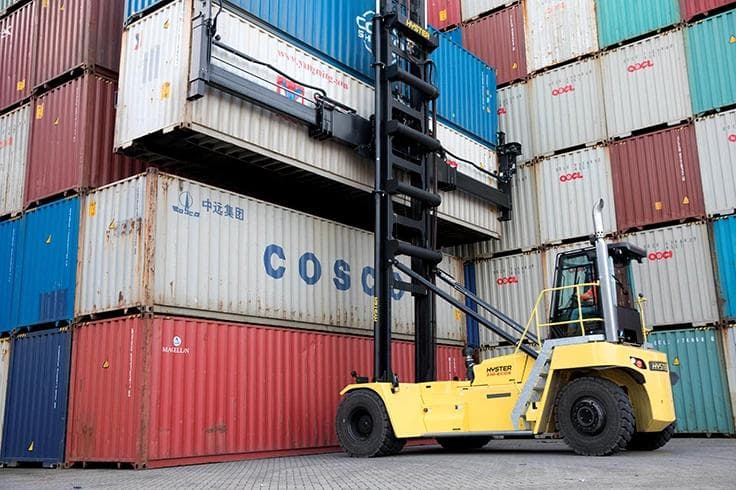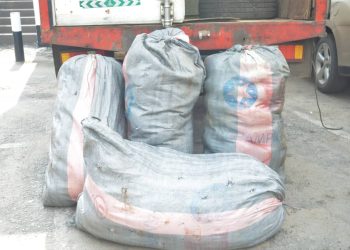Human Interference as Barriers to Trade in Nigeria, Implementation of the 846 System of Valuation
… Findings and Recommendations
 Issued by: Sea Empowerment Research Centre (SERC)
Issued by: Sea Empowerment Research Centre (SERC)
Executive Summary
The Nigeria Customs Service (NCS) 846 system of valuing goods, originally conceived to standardize and automate customs valuation, has been significantly undermined by systemic human interference. Multiple layers of approvals, cross-references, and post-clearance interventions have created bottlenecks for operators to take advantage of the system, inflate the cost of doing business, delay cargo clearance, and contradict President Bola Ahmed Tinubu’s Presidential Enabling Business Environment Council (PEBEC) reforms on the ease of doing business.
 The persistence of these practices also undermines the ongoing NCS modernization project, which is intended to align customs operations with the World Trade Organization (WTO) Customs Valuation Agreement and Nigeria’s commitment to the Trade Facilitation Agreement (TFA).
The persistence of these practices also undermines the ongoing NCS modernization project, which is intended to align customs operations with the World Trade Organization (WTO) Customs Valuation Agreement and Nigeria’s commitment to the Trade Facilitation Agreement (TFA).
Background
The 846 valuation framework was introduced as a digital and standardized system for determining customs values for non VIN imports, in line with Sections 24–30 of the Customs and Excise Management Act (CEMA), which empowers NCS to implement fair, uniform, and transparent valuation methods. However, implementation has been plagued by manual interventions and excessive human oversight, leading to widespread inefficiency and trade distortions.
Findings: Layers of Human Interference at Various Commands.
An import consignment cleared under the 846 system typically undergoes a sequence of approvals from multiple units at each Command.
Valuation Unit: Initial computation of customs value.
Approval Units (multiple): Sequential endorsements by separate officers.
Reference, Compliance, SA, Central, and C.I.Units: Additional cross-checks and validation, each adding hours to days of delay.
Release and Gate Units: Final physical release, with additional checks that often duplicate earlier processes.
Federal Operations Unit (FOU) Roadblocks: Even after lawful clearance, consignments are frequently intercepted at FOU checkpoints mounted every few meters from the port gate, causing further delay and unreceipted costs.
Economic and Statistical Impact
Average Dwell Time: Clearance under 846 currently averages 5 -7days, compared to the 48-72hours standard recommended by the WTO TFA.
Cost of Doing Business: Multiple interventions contribute to an estimated 20–35% increase in logistics costs for importers.
Revenue Leakage: Repeated “verifications” encourage informal payments, eroding customs revenue integrity.
Competitiveness: Nigeria’s World Bank Logistics Performance Index (LPI) ranking remains in the lower quartile, with customs efficiency cited as a key weakness.
Legal and Policy Contradictions
Violation of WTO Customs Valuation Agreement (Article 1): Customs value must be based primarily on the transaction value, free from arbitrary upliftments.
Contravention of Trade Facilitation Agreement (TFA) Articles 7.1 & 10.1: These call for risk-based inspections and simplification of documentation.
Conflict with Presidential Executive Orders (2017 & 2023): These orders mandate streamlined port operations and the elimination of multiple checkpoints.
CEMA Sections 145 & 149: While providing for post-clearance controls, these do not justify systemic harassment of compliant importers.
Implications for Modernization
The current practice undermines:
The Single Window Project, which seeks to digitize and integrate all trade documentation and approvals.
The Customs Modernization (e-Customs) Initiative, aimed at eliminating manual bottlenecks.
Nigeria’s national competitiveness, as traders divert shipments to neighboring ports with more predictable clearance systems.
Recommendations
1. Eradication of various human interference associated with 846 Valuation Framework:
2. 90 days notice to importers and stakeholders to the commencement of a new policy.
3. Full automation of valuation with minimal human intervention, in line with the WTO system of valuation.
4.Adoption of a Single Window Platform.
5.Integration of all customs approvals into one digital interface, eliminating cross-unit physical approvals to optimise revenue generation.
6.Focus inspections on high-risk consignments to reduce delays for compliant traders.
7. Immediate removal of FOU roadblocks within 20 km of port gates, as mandated by Executive Orders.
Conclusion
Persistent human interference in the 846 system has turned a reform meant to simplify trade into a complex, costly, and unpredictable process. A drastic overhaul aligning with WTO valuation methods and the Single Window System is urgently required to realize the objectives of President Tinubu’s ease of doing business policy and the NCS modernization agenda.
 Francis Uchechukwu Aniezechukwu is the
Francis Uchechukwu Aniezechukwu is the
Director-General of Sea Empowerment Research Centre (SEREC)




















